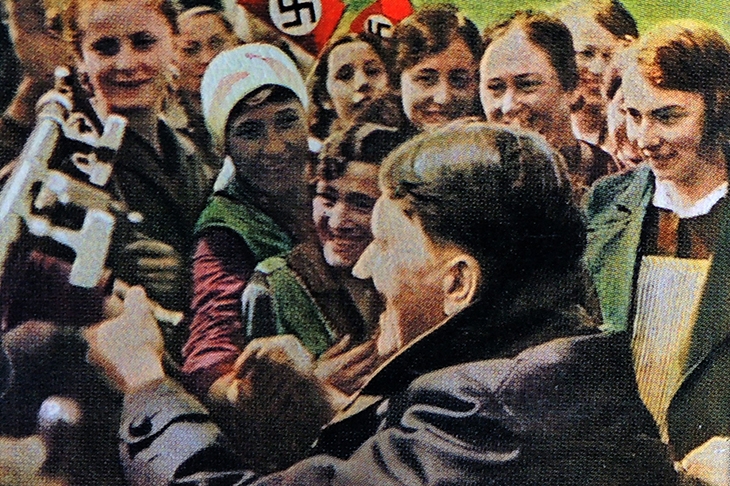The distinguished historian Konrad Jarausch’s new book is a German narrative, told through the stories of ordinary people who lived through his chosen period. Six dozen Germans — mostly from the generation born in the 1920s — testify through their memoirs to how it was to be Christian or Jewish, working-class or upper- middle-class, a young Nazi or a young anti-Nazi. The main characters constitute, as Jarausch explains it, ‘a stratified sample of individuals who represent a broad range of personal and collective experiences’ seen from the bottom.
The book begins with the grand-parents of this generation, and the stability of Wilhelmine Germany with its pre-1914 confidence and prosperity. War, social dislocation and crisis follow — but, oddly, the young people born as the generation of the 1920s still seem to live in peace.
The Nazi seizure of power changes things. Teenage girls are swept away by Hitler, and record his greatness in religious terms. They join the various Nazi clubs and movements with enthusiasm. Jews begin to suffer, and they record their alienation. Then the war comes, and with it the sudden ecstasy of victories beyond belief. The greatness of the Führer has no limits.
Who are these people and how were they chosen? The central group belongs to a cohort and — as Jarausch asserts, though he offers no evidence for the claim — are in some way ‘typical’ of the generation he presents. How are they identified? How many in each group? None of this is entirely established. Is there any way to say with certainty what they really did, what they added to their memoirs or erased and left out? This is a particularly unsettling question when it comes to the Nazis. Jarausch quotes from diaries and postwar recollections, but there is no way to know if those who were active Nazis tell the truth in their diaries.








Comments
Join the debate for just £1 a month
Be part of the conversation with other Spectator readers by getting your first three months for £3.
UNLOCK ACCESS Just £1 a monthAlready a subscriber? Log in